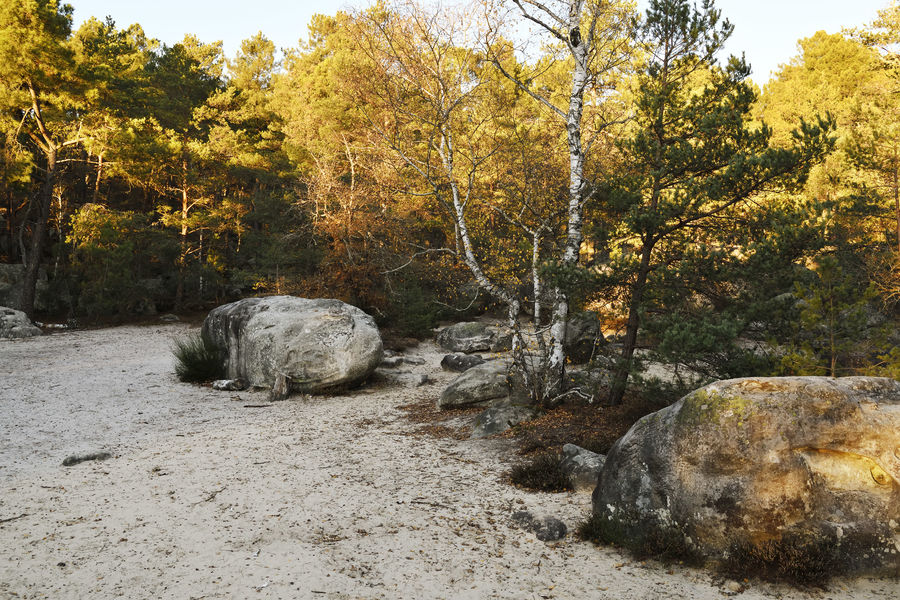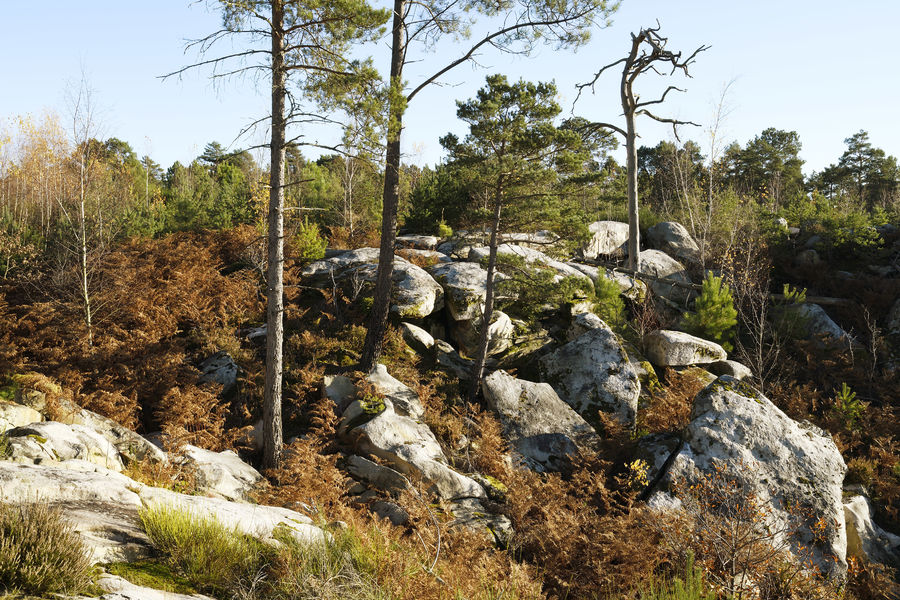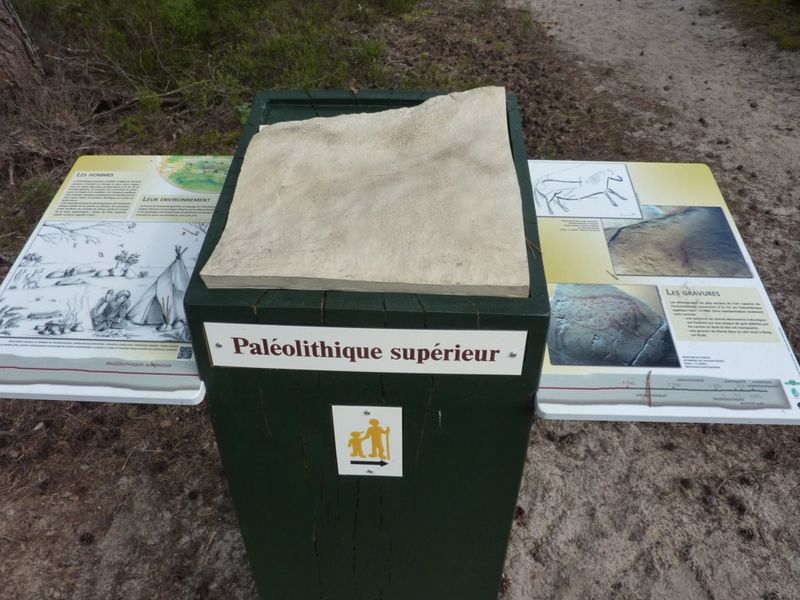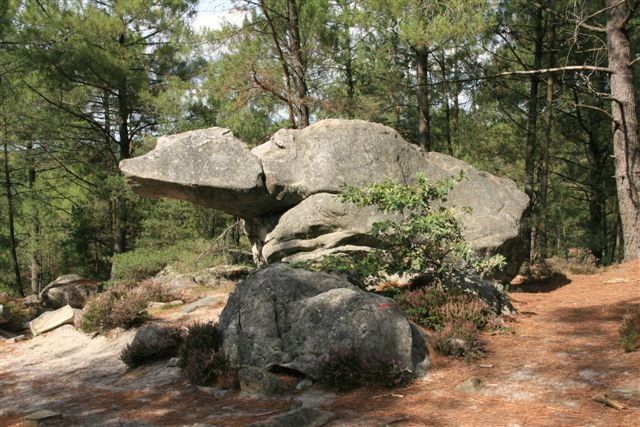Rock art discovery trail
This walk allows the discovery of a littleknown archeological heritage in the forest of Fontainebleau, yet ancient and precious: rock engravings.
Parking du Rocher Cailleau
77123 Le Vaudoué
77123 Le Vaudoué
The sands: they are among the finest and purest worldwide, with a silica content above 97%. They were deposited about 30 million years ago. Today’s Fontainebleau region was located on the shore of a vast shallow marine gulf
around which 30 to 60 meters of coastal sands accumulated. Much later in the Quaternary era, these sands were cemented, giving birth to sandstone plateaus called “platières” which then fractured, thus creating the famous boulders of the forest.
Rock engravings: between Fontainebleau and Rambouillet, more than 2000 shelters with engravings have been counted. They can be dated from the lower paleolithic (35 000 to 9 500 BC) up to World War II. The trail is dedicated to the explanation of these artefacts and their fragility. In order to preserve them for future generations, it is important not to rub, walk upon, re-engrave, or colorize them. Reproductions are available in the Prehistory Museum in Nemours.
around which 30 to 60 meters of coastal sands accumulated. Much later in the Quaternary era, these sands were cemented, giving birth to sandstone plateaus called “platières” which then fractured, thus creating the famous boulders of the forest.
Rock engravings: between Fontainebleau and Rambouillet, more than 2000 shelters with engravings have been counted. They can be dated from the lower paleolithic (35 000 to 9 500 BC) up to World War II. The trail is dedicated to the explanation of these artefacts and their fragility. In order to preserve them for future generations, it is important not to rub, walk upon, re-engrave, or colorize them. Reproductions are available in the Prehistory Museum in Nemours.
Tarifs
Free access.
Prestations, conforts et services
- Langues parlées :
- French
- Level green – easy
Périodes d'ouverture
All year round.




